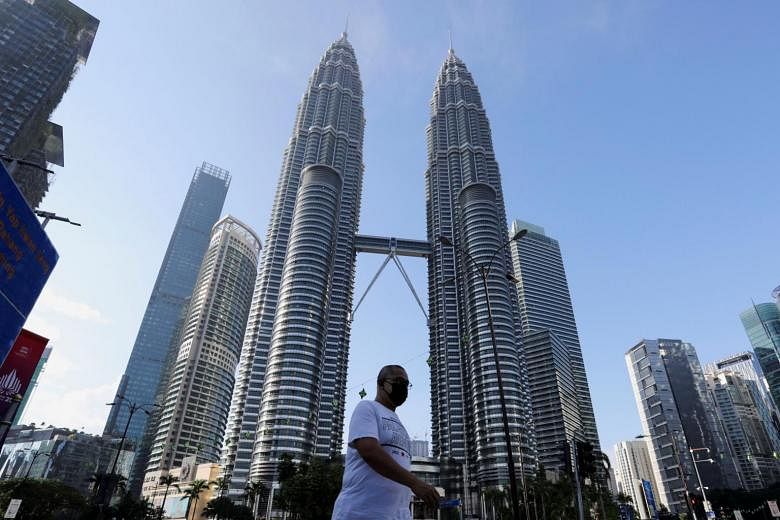KUALA LUMPUR - Malaysia expects to reopen the economy and lift movement controls for most states as early as October as the country ramps up its Covid-19 immunisation programme, Prime Minister Muhyiddin Yassin told Parliament on Monday (July 26).
Tan Sri Muhyiddin was briefing lawmakers on the National Recovery Plan (NRP), which outlines how the government intends to exit from movement curbs introduced in May and currently in place nationwide.
"God willing, with continuous efforts to drive the recovery process and the immunisation programmes going smoothly, we expect most states to move into the fourth phase as early as October," he said.
The four-phase NRP was first announced by Mr Muhyiddin on June 15. Phase one is the most restrictive, with only essential services allowed to operate and people and businesses placed under lockdown. Under phase four, people will return to normal daily life, with most economic sectors allowed to reopen subject to health protocols like contact tracing and social distancing.
As at Monday, five states - Kedah, Selangor, Negeri Sembilan, Melaka, Johor - and three federal territories - Kuala Lumpur, Putrajaya, Labuan - remain under lockdown under phase one.
The remaining eight states - Perlis, Perak, Pahang, Kelantan, Terengganu, Penang, Sabah and Sarawak, have transitioned to phase two. While travel restrictions remain under phase two, businesses such as hairdressers and car wash operators are allowed to open.
Mr Muhyiddin said the government will continue to monitor the situation in each state closely, including taking intervention measures as needed.
"In addition, the government will continue to conduct risk assessments including assessing the readiness of any state to move to phase two, three or four," he said.
Under the NRP, the transition from each phase will be guided by the average number of daily cases, the vaccination rate and the level of utilisation of hospital ICU beds.
Mr Muhyiddin later drew flak from opposition lawmakers for being absent from Parliament in the evening, when they posed questions on the NRP. He instead left it to Finance Minister Tengku Zafrul Aziz to answer on his behalf.
"Never before in history - since Independence, since the establishment of Parliament - where questions to the Prime Minister ... are answered by the Finance Minister," said Opposition Leader Anwar Ibrahim.
Malaysia continues to see daily infections soar despite shutting down most economic sectors and keeping people home. It reported a record high of 17,045 new cases on Sunday, which sent the total number of cases since the pandemic began over the one-million mark.
On Monday daily infections dipped slightly to 14,516 cases, but the daily death toll hit a new high of 207.
The Klang Valley region - consisting of Malaysia's capital Kuala Lumpur and its most populous state Selangor - continued to contribute the bulk of infections. Johor state saw a surge in cases to 1,449, surpassing cases in Kuala Lumpur.
Noting that cases can surge in certain areas, Mr Muhyiddin said the government will move to tighten movement curbs based on locality instead of implementing blanket restrictions on a whole state or territory.
As of Sunday, 5.4 million people, representing 16.5 per cent of the country's population, have received both doses of a Covid-19 vaccine. Over 11.5 million people, or 35.2 per cent of the population, has received at least one dose.
Parliament was on Monday meeting for the first time this year following pressure from the King, Sultan Abdullah Ahmad Shah, to reconvene as the Covid-19 pandemic situation worsened.
Parliament had been effectively suspended since a state of emergency was declared in January, purportedly to tackle surging Covid-19 infections. But the numbers of cases and deaths have climbed steeply since.
"It's true that the government is not perfect. But what is also true is that the government doesn't want its people to suffer, and always takes action to save lives and the livelihood of the people," Mr Muhyiddin said.
"What is important is that we must stand in solidarity in such difficult times. There is no need for us to argue and point our fingers. So, let us work together and seek a consensus and success in every effort we put in," he added.












